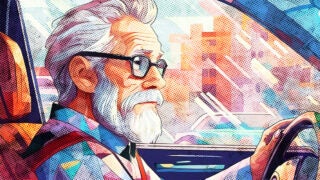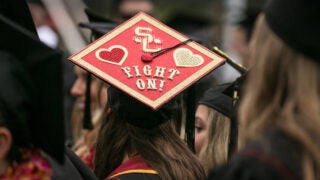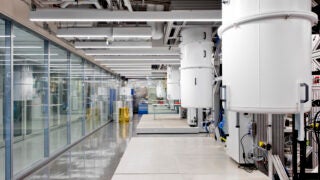USC News
Top Stories
It marks the fifth time in the eight stagings of the event the Trojans have claimed the crown.
USC researchers investigate whether state reporting mandates are associated with clinicians’ likelihood of underdiagnosing dementia.
Dozens of student-focused events will recognize the newest graduates.
With Williams’ No. 1 overall selection, USC now holds the record for most players selected as the top pick of the NFL draft.
Trending
IBM agreement boosts USC’s quantum computing leadership
USC in the News

The Perils and Promise of California’s ‘White Gold’
The race to mine lithium at the Salton Sea is intensifying, but USC experts caution against potential environmental health impacts in a region already burdened by poverty and air pollution.
Hot Topics
USC Alumni Association turns 100
USC Alumni Association marks a century of celebrating the Trojan Family.
Transforming USC’s athletics facilities
University President Carol Folt’s “moonshot” for athletics builds on recent momentum to support all 21 sports programs and launch USC Athletics into the future.
Frontiers of Computing
USC launches a $1B-plus initiative for computing including advanced computation, quantum computing, AI and ethics. It’s the largest, most comprehensive academic initiative in USC’s history.







